Culture, Historical Essays, LGBT+
Cutting God out of Remembrance Day
Every year on November 11, Canadians across the country cluster in the cold around cenotaphs of concrete and stone to commemorate our war dead. In a society almost entirely devoid of tradition and ritual, Remembrance Day ceremonies wield particular power: the tread of boots on asphalt in the silence as the military parade passes by; the shrill of the bagpipes; God Save the Queen (or, last year for the first time since 1951, God Save the King); the laying of the wreaths; the reading of John McCrae’s In Flanders Fields; and the moment of silence at 11 AM followed by the Last Post, the notes echoing into the reverie. It is the last Canadian ceremony of its kind.
My parents took us to the cenotaph for the Remembrance Day ceremonies in Chilliwack, British Columbia, every year. For us, it was an act of gratitude as well as remembrance—my Dutch grandparents on both sides were liberated by Canadian forces, and I grew up hearing stories about the War. Remembrance Day was an opportunity to honour the soldiers who had come from Canada and fought to liberate my family, who after the War had crossed the ocean to become Canadians themselves. Two years ago in Tillsonburg, Ontario, I watched my four-year-old daughter walk up to an elderly veteran in his mid-nineties who had fought in Holland to thank him for what he had done.
I remember my mother commenting years ago after attending the November 11 ceremonies where prayers were offered and hymns were sung—lustily by the older people and mumbled by a handful of the young—that surely the government would not be able to cut Christianity out of this day. After all, the grave of each fallen soldier in far-flung battlefields is marked by a pure white cross (or, in the case of Jewish combatants, a Star of David). On the cenotaph in Brantford, Ontario, the enormous grey cenotaph with the relief of a sword embedded in it reads: “To the Glory of God and in the memory of the men and women of Brant Country whose names are here recorded who gave their lives on active service for Canada.”
In nearby Paris, the memorial takes the shape of a cross, with names like Passchendaele, Vimy, Hill 70, and the Somme carved into it with the solemn inscription: “To the Glory of God and the memory of the men and women of Paris who fell and in honour of those who served in the Great War.” The monument that towers among the trees directly facing Niagara Falls is topped by a soldier clutching his helmet and rifle and is also dedicated to “the Glory of God” and the men of Niagara who “fell in the Great Wars.” The Tillsonburg cenotaph features a large cross flanked by two swords. Scarcely a single hamlet, town, or city in the country lacks a war memorial—and almost all pay tribute to the Christian faith that once defined the country for which the fallen died. Most would not recognize the country Canada has become.
Iwonder what the men buried beneath the crosses would think of a directive released in October by the Chaplain General of the Canadian Armed Forces effectively banning military chaplains from praying at public ceremonies. “Historically,” the directive notes, “public prayer was featured in Canadian Armed Forces (CAF) ceremonies and public functions as a means to commemorate these occasions, such as the Battle of the Atlantic, the Battle of Britain, Remembrance Day, and other local events.” Times, however, have changed: because people pray in different ways and some do not pray at all, “Chaplains must ensure that all members feel respected and included by undertaking inclusive practices that respect the diversity of beliefs with the CAF.”
In short, in the name of inclusion, prayer will henceforth be excluded from these events; only vague, unaddressed ‘reflections’ are cautiously permitted.
Indeed, the directive essentially orders chaplains to eliminate all public displays of religiosity, which would include crosses, turbans, collars, and other religious garb or symbolism (although presumably the cross-shaped memorials and cenotaphs themselves cannot yet be torn down). This is allegedly to protect members of Canada’s armed forces from being traumatized by public expressions of Christianity (or, presumably, other faiths), which is an extraordinary inadvertent insult to Canadians in uniform. Chaplains were also ordered to stop asking attendees to remove their hats or head-coverings while offering the reflections that are to replace prayers because these reflections cannot be considered religious.
In response to backlash, Defence Minister Bill Blair insisted that the directive does not say what it clearly says: “Let’s be very clear: Canadian Forces chaplains are not—and will not be—banned from prayer on Remembrance Day, nor at any other time. This directive is about expanding participation in the reflections of military chaplains—not about limiting it.” Unfortunately, the actual directive is very clear, especially in the careful distinction between prayer and explicitly irreligious reflections. He did not address the fact that the same directive instructs chaplains to replace the cross on their vestments with a generic crest, and many chaplains have affirmed that Christianity is being expunged from these sacred public ceremonies by the government.
Indeed, the Trudeau government believes that Christianity may be a source of active harm. This new directive follows a 2022 report, the “Minister of National Defence Advisory Panel on Systemic Racism and Discrimination.” This report recommended that the Canadian Armed Forces stop hiring chaplains who “represent or are affiliated with organized religions whose beliefs are not synonymous with those of a diverse and inclusive workplace” as these faiths should be seen as “a source of suffering and intergenerational trauma” for many Canadians, with this being “especially true for many lesbian, gay, bisexual, transgender, queer and two-spirited members of Canadian society.” Col. Lisa Pacarynuk, the director of services for the Royal Canadian Chaplaincy Service directly contradicted the defence minister in a radio interview, stating that “in a public setting where there are people who do not believe in God or people who bring different perspective, [chaplains] will not use that language.”
Conservative Member of Parliament Blake Richards, the committee vice-chair of the House Veterans Affairs Committee Meeting, called for an investigation into what the Conservatives are calling a “gag order” for chaplains. “As a result of the directive I referenced in the motion, chaplains won’t be able to pray for the fallen or pray for those who’ve served this country at public ceremonies such as Remembrance Day,” Richards said. “It may restrict our ability to hear the words to “In Flanders Fields” because it references crosses. It may restrict our ability to sing the national anthem, because it references God. It may restrict our ability to have hymns such as Amazing Grace, which are often sung at remembrance services.” As it turns out, it is possible to cut Christianity out of Remembrance Day—the Trudeau government is doing it.
READ THE REST OF THIS ESSAY AT THE EUROPEAN CONSERVATIVE
***
SUBSCRIBE TO THE BRIDGEHEAD SUBSTACK NEWSLETTER HERE.


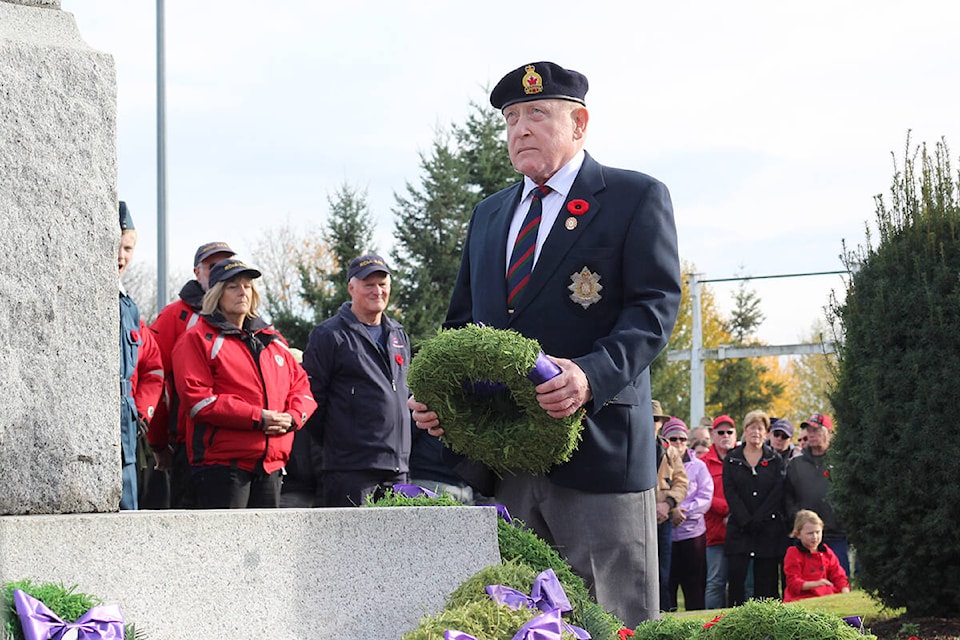
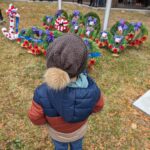


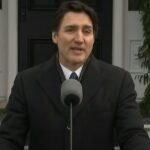
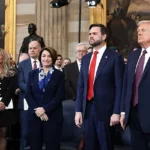
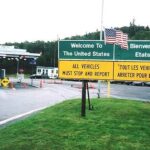
What about our motto on the Parliament Building in Ottawa that says. “GOD SHALL HAVE DOMINION FROM SEA TO SEA.” Psalm 72:8.
Yes, indeed.